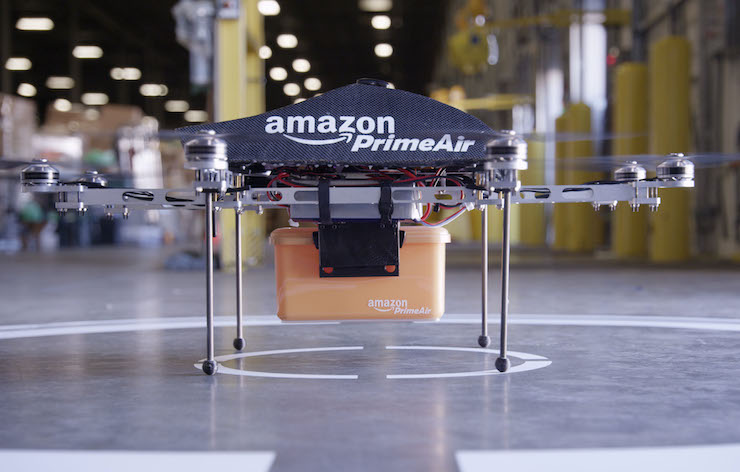Will Amazon’s Long-Delayed Drone Service Finally Prove Airworthy?

Amazon Prime Air, the mass retailer’s drone service, continues to face obstacles to a full-scale launch of its long-delayed operations. While some experimental drone deliveries have gotten underway in two small towns – Lockeford, CA and College Station, TX – the FAA has yet to grant the company authority to fly without close visual observation and highly restrictive safety protocols. Without more freedom to fly unimpeded, the company has struggled to fulfill its commitment to provide its customers with a prompt on-demand service.
Still, last year was a banner year for Prime Air. Despite cutbacks in staff, and the firing of its chief safety official, the company completed thousands of successful drone deliveries, compared to just a few hundred previously. Amazon seemed poised to try to play “catch up” with a growing list of its competitors – Wing, UPS and Zipline, among them – in the burgeoning retail drone delivery market.
But the uptick in Prime Air deliveries in College Station has produced something of a backlash among local residents, whose objections to the expanding service could slow the company’s progress once again.
Those objections were on full display last week at a local town council meeting. Some two dozen people stood up to complain about the noise they say Prime Air drones create by flying low over their neighborhoods. Some want the flights ceased, while others are demanding changes in the way the company operates.
“When my family moved into our current home on Brookwater Circle it was located in a quiet residential area, today because of Amazon Prime Air’s drones, it is effectively an industrial zone,” Mark Urquard told the meeting “Every day of the week the noise equivalent of a flying chainsaw rises above the treeline of my backyard and flies over our house.”
Another resident said noise has become a bigger problem now that Prime Air drones are flying more often. “The drones make a very annoying sound. About every five to 10 minutes a drone is coming and going. Personally, I don’t want to live in a place that has drones flying this low over my house – they’re just about 30 feet above the trees,” he said.
Despite that recurring refrain, some local residents said they supported Prime Air’s service. Several non-profit groups that have benefitted from Amazon’s funding initiatives in College Station, including Brazos Valley Gives, United Way of the Brazos Valley and Wreaths Across America, spoke approvingly about the company’s role supporting their work in the community.
Prime Air officials say they are working on the noise issue. The company has designed a new, more compact version of its delivery drone known as the MK30, which officials say reduces propeller noise by 60%. The MK30 also includes better obstacle-avoidance and weather resistance technology, which could improve flight safety. The new drone will be flying over College Station in a matter of months.
Prime Air officials say they will continue to respond with additional adjustments, as needed. One possibility is having their drones fly at a much higher altitude, as those operated by Zipline and Wing typically do.
For now, the town council in College Station appears to be taking a wait-and-see attitude before voting on possible measures to restrict future drone flights.
Prime Air officials are optimistic about moving forward not only in College Station but at its second location in Lockeford, where fewer drone flights to date have been made.
The company recently signed agreements with civil air authorities in Italy and the UK to begin delivery flights in each country later this year. Amazon also hopes to add a third local delivery site in the US, but the location has yet to be disclosed.
Meanwhile, the FAA is continuing to monitor Prime Air’s progress. While Zipline and Wing have already received full-throated approval for BVLOS flights and are zooming ahead with their deliveries, Prime Air, it seems, is still trying to grow its wings.
|